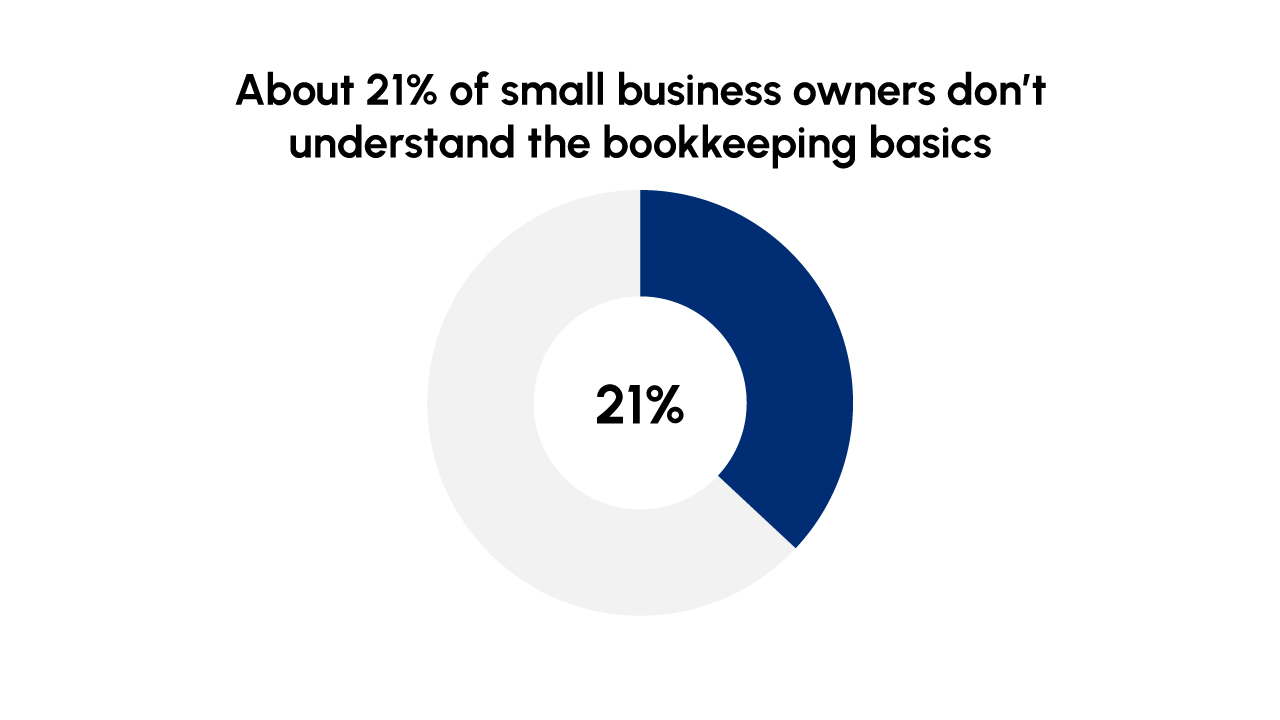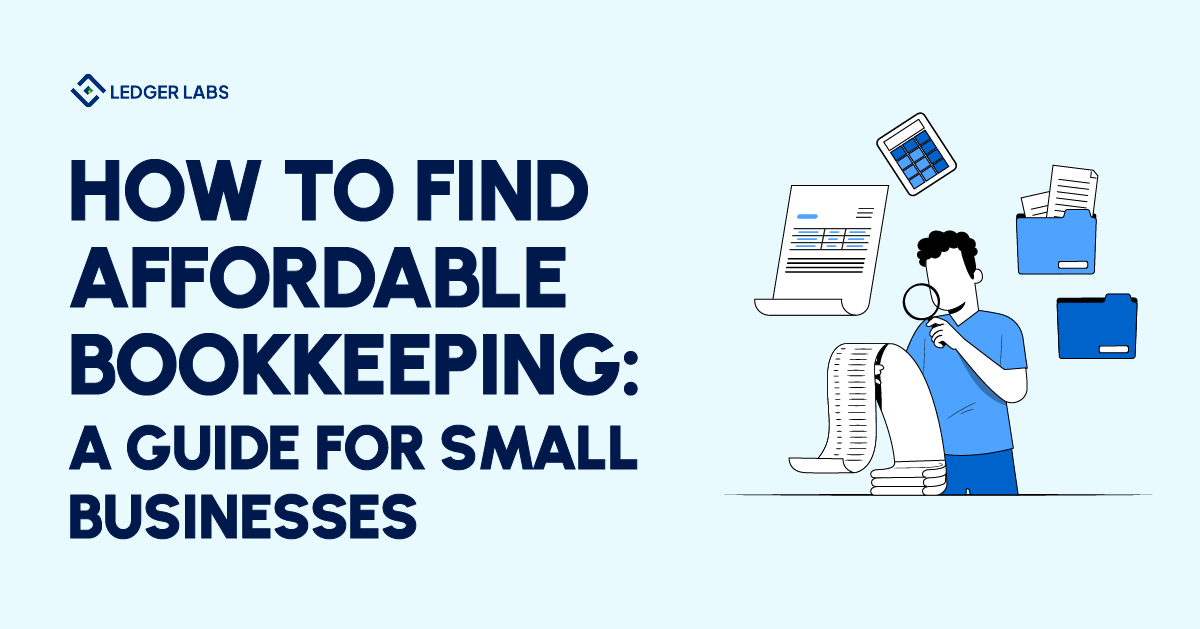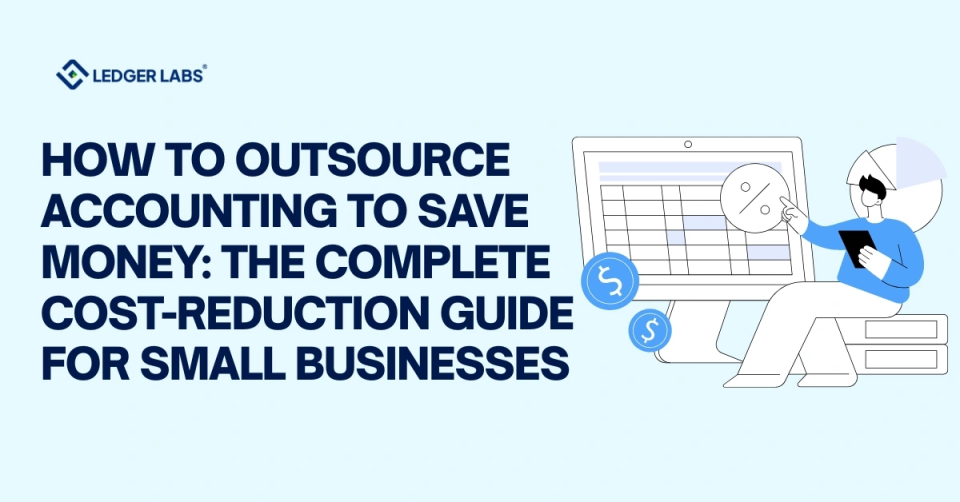Accuracy in your financial records is unequivocally mandatory by law to stay tax-compliant. However, most business owners struggle with this.
As a solution, outsourcing bookkeeping functions can be a strategic move to optimize your financial management.
Doing so will not only help you get professional expertise but also free up your significant time for core operations.
But how do you find an expert in the first place?
Let’s talk about that in detail.
- Accurate bookkeeping is essential for legal compliance and informed decision-making in business.
- Outsourcing bookkeeping tasks saves time, provides accuracy, and improves cash flow management.
- Professional bookkeeping services can visibly scale your business’s growth.
- Hiring a knowledgeable bookkeeper ensures adherence to the latest regulatory requirements.
- Bookkeepers provide valuable insights beyond numbers, guiding better financial planning and strategy.
Why is Bookkeeping Crucial for Small Businesses?
Robust financial reporting is vital for all organizations, especially SMEs.
Detailed bookkeeping can give you a real-time window into your financial performance. This helps identify and amend issues before they become a major problem.
However, there’s a lot of gap in bookkeeping literacy among small and mid-size business owners.
In fact, 21% of SME owners say they don’t know the basics of bookkeeping.

It’s crucial to bridge this gap to improve the ability to interpret financial data, budgeting, and growth.
Other reasons why bookkeeping is essential for businesses, no matter the size, are:
- Makes it easier to understand and analyze data
- Allows tracking of certain information as per the IRS standards
- Provides better insights for decision-making
- Helps track your progress and profits
- Allows you to manage resources for new projects and launches
Can Small Business Owners Manage Bookkeeping on Their Own?
About 34% of small business owners personally manage their organization’s financial statements.
If you’ve got a solid team of trained professionals handling numbers and reports, you don’t have to worry about outsourcing bookkeeping.
No matter how you choose to move forward, certain components are fundamental to accurately maintaining the books. They include:
- Recording Transactions: Bookkeepers record debits and credits through journal entries. It ensures that each financial transaction is documented in the general ledger and consolidates all activities in one place. Some accounting software can automate the journal entries’s procedure, eliminating possible errors.
- Sending Invoices: Bookkeepers will create and issue invoices to collect outstanding payments if they aren’t generated at the time of sale. This involves adding details such as the date, amount, quantity, and applicable sales tax. When invoices are processed through accounting software, it simplifies creating a corresponding journal entry that debits the cash.
- Preparing Financial Statements: All the information gathered in bookkeeping is fundamental to all financial statements. They include a balance sheet, expense statement, and cash flow statement. Accounting software allows you to run these records, helping business owners gain insights into their financial health.
- Completing Payroll: One of the most essential tasks of running a business is to pay your employees on time. The bookkeeper gathers all the payroll details at the end of every pay period. The paychecks are issued after applicable taxes are applied.
Benefits of Hiring A Professional Bookkeeping Service Provider
Why hire a professional bookkeeper?
Even though you may handle your finances in-house, managing some tasks could still be daunting.
When bookkeeping isn’t managed effectively, it can lead to compliance issues.
Outsourcing accounting not only relieves this burden but also offers many advantages that go beyond just number-crunching. Here’s how it can help:
Saves Time
Bookkeeping can consume significant time and effort.
For business owners juggling multiple responsibilities, this can get overwhelming soon.
A professional bookkeeping service handles routine financial tasks, freeing up valuable time.
With less time spent on bookkeeping, you can focus on growing your business and attending to core tasks.
Ensures Accuracy in Financial Records
Errors in financial records can result in costly consequences.
For instance, it can lead to compliance issues, inaccurate tax filings, and financial penalties.
Here, expert bookkeepers ensure your records are accurate and up to date.
They use advanced accounting tools to track every transaction to catch potential errors early.
Improves Cash Flow Management
Managing the money coming in and going out effectively is essential for any business.
Proper cash flow management can prevent the business from struggling or even failing.
A pro can help you maintain a healthy cash flow.
Their reports will aid you in identifying trends and addressing issues before they become problematic.
Enhances Financial Compliance
Navigating tax laws and regulations can be confusing.
However, it’s important for a business to stay updated on the latest regulatory requirements. This is where the assistance of professional bookkeepers comes in.
As they keep themselves up-to-date with legal laws, they ensure that your financial records meet all compliance standards.
Moreover, the professionals prepare accurate documentation on time, significantly reducing the risk of penalties, fines, or legal troubles.
Provides Expert Financial Insights
Poor knowledge of accounting may lead to missed growth opportunities or overlooked risks.
On the contrary, a professional’s assistance may offer several benefits apart from just recording numbers.
Their expert advice can help you gain insights into profit trends, cost-saving opportunities, and potential risks. As a result, your organization can make informed decisions to drive growth.
Offers Scalability to Meet Business Needs
As your business grows, so do your financial needs.
Trying to handle everything internally can be overwhelming, especially during peak periods.
Professional bookkeeping services can scale their offerings to meet your business needs.
Whether you require additional support during tax season or minimal assistance during slower periods, expert bookkeepers can adjust accordingly.
This flexibility gets you the right level of support when you need it most.
Step-by-Step Guide to Hiring An Affordable Bookkeeping Service Provider
The right approach can guide you to find an affordable bookkeeping service that aligns with your budget and business goals.
Here are the simple steps that can help you with the process.
Step 1: Access Your Business Needs
Before searching for the best bookkeeper, identify what your business truly requires.
Are you looking for basic bookkeeping, or do you need more comprehensive solutions like tax preparation?
Understanding your requirements will help you avoid paying for services you don’t require.
Moreover, this clarity will ensure the bookkeeper can address your specific financial challenges.
Step 2: Define the Scope of Services
After you’ve understood your business goals, clearly outline the solutions you need from the provider. Doing so will minimize the chances of confusion later. The scope of services may include:
- Daily Transactions
- Monthly Account Reconciliations
- Quarterly Financial Analysis and Reports
- Maintain Current Records
- Tax Compliance
- Prepare for Tax Obligations
- Manage Bank Transactions
- Oversee Accounts Payable
- Payroll Management
- Issue Invoices and Manage Receivables
- Generate Financial Statements
- Handle Foreign Currency Transactions
- Conduct Inventory Checks
- Monitor Cash Flow
A well-defined scope helps you communicate your expectations effectively. It also allows the provider to give you an accurate quote, preventing unexpected costs down the road.
Step 3: Research Potential Bookkeepers
The next step after defining your service requirements is to look for potential providers.
Not all companies deliver the same quality of services. So, you need to figure out which one suits your needs best.
Start by searching for providers with a good reputation in your industry. You can also read online reviews and ask for suggestions from other business owners.
Doing your homework helps you shortlist reliable partners who have proven their ability to deliver quality services.
Step 4: Evaluate Experience and Credentials
Experience in accounting and bookkeeping matters when it comes to bookkeeping.
A seasoned bookkeeper is more likely to understand your industry’s financial intricacies, compared to a newbie.
No doubt, the services will be a bit expensive but their expertise will help save a lot of money in the future.
When searching for providers, look for relevant certifications such as CPAs or licensed bookkeepers. These qualifications indicate they’re well-trained in the industry and have a higher level of professionalism.
Step 5: Understand the Technology and Tools Used
Whether you’re handling your finances on your own or hiring a bookkeeper, the importance of the right accounting software can’t be overstated.
As it plays an essential role in streamlining your financial records, you must know which tool is the most compatible with your existing systems.
There are many bookkeeping software available, including NetSuite, QuickBooks, Xero, etc.
In this digital era, you need to hire a bookkeeper well-versed in modern technology and software.
Find out what tools your chosen service provider is proficient in. You may also consider asking about which software they usually use for data management, financial reports, and payroll management.
This way you can integrate the right technology into your system to simplify all the financial processes.
Step 6: Check Communication and Support
Good communication is essential for the overall success of the collaboration.
The first interaction with the bookkeeper provider will help you analyze how they handle clients.
During the conversation, also assess their responsiveness and clarity in communicating their ideas.
A reliable service provider should be easy to reach out to and responsive to your questions. They should offer clear explanations of financial reports and be willing to make adjustments to match your expectations.
Ask about their preferred communication methods and typical response times.
This ensures you’ll get timely support, especially during critical financial periods like tax season.
Step 7: Evaluate for Scalability and Future Growth
Your business’s financial needs will likely change over time. And that’s a good thing as it means you’re growing.
However, you should choose a bookkeeping service that can scale its offerings to match your growth.
When you need more extensive support during busy periods, their ability to scale ensures you don’t outgrow your bookkeeper.
It also gives you peace of mind knowing they can handle additional workload if your business expands.
Step 8: Discuss Cost and Service Agreements
It’s vital to understand the pricing structure before signing any contracts.
After all, the cost will finally determine which bookkeeping service you’re going to choose.
However, don’t forget to balance the quality and rate of their services.
Ask for a detailed breakdown of costs from your shortlisted providers, including any additional fees that may apply.
This should depend on the factors, such as:
- The complexity of your business
- Scope of the service
- Expertise needed
Knowing the fees upfront prevents surprises and helps you stay within budget.
Additionally, read their terms and conditions like contract duration, payment schedules, etc.
Step 9: Negotiate and Finalise the Agreement
The moment you decide which bookkeeping service provider you’re going to go with, document an agreement.
Don’t hesitate to negotiate the terms, as you may see fit for your business. Negotiating will help you get the best value for your money.
You can discuss payment plans and contract length, or request a customized service package.
Once both parties agree, finalize the terms in writing to avoid misunderstandings later.
Step 10: Review Protocols
Regular reviews and communication are key to maintaining a healthy partnership with your bookkeeping service provider.
After hiring the most suitable option, set up protocols for regular check-ins and financial reviews.
This step will help you stay informed about your financial status and assure you that the bookkeeper meets your needs.
Final Thoughts
Outsourcing bookkeeping can make handling finances a breeze and not a headache.
When finding the right bookkeeping solution provider, look for some green flags to get the most out of this service. For instance, choose the one who not only focuses on details but also understands how those details impact the overall financial health of the business.
Furthermore, they should know which tasks are part of the accounting cycle and how to perform them accurately.
Ledger Labs can be your trusted partner when looking for high-quality bookkeeping services for your small business. We offer a range of solutions tailored to meet the unique needs of your growing businesses.
From managing daily transactions to preparing financial statements, we can ensure your books are accurate and up-to-date. Contact our team now to schedule a consultation and see how you can experience stress-free financial management.












